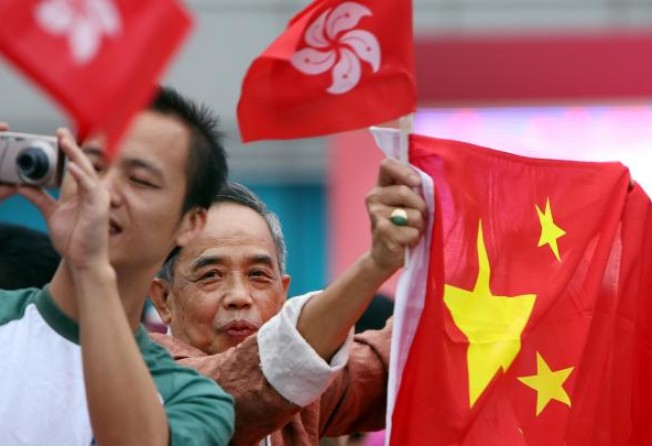Hong Kong identity caught between political reality and insecurity
April Zhang looks at the struggles amid fears of a mainland 'invasion'

When many Hong Kong people are abroad and are asked where they are from, their answer is usually "Hong Kong". They consciously avoid answering "China". This small thing reflects Hong Kong people's effort to mark themselves apart from their mainland counterparts, and shows that Hong Kong people regard Hong Kong as an entity, sufficiently well known to grant them a unique identity.
But if we press further for answers, we find many complexities. First, Hong Kong is not a sovereign city state, like Singapore. Second, it is no longer a British colony. Third, is Hong Kong part of China? The political answer is "yes". As for what people truly feel, Hong Kong's social conflicts offer clues.
Aware of the politically correct answer to the question of identity, Hong Kong people tend to reject it. One way they do so is through protests, of which we've seen numerous of late.
One issue underlines this rebellion: Hong Kong people's increasing feeling of helplessness about their shrinking superiority over mainlanders. Protests against Dolce & Gabbana were about mainland tourists having more privileges than locals. Protests against pregnant mainlanders were because locals felt entitled to maternity beds and mainland mothers were taking away this privilege. Protesters against mainland drivers claimed they are more prone to causing accidents, implying that their driving is substandard. Protests against the national education curriculum were about rejecting a mainland programme that is seen as biased and aimed at brainwashing Hong Kong children.
All these protests aimed to protect Hong Kong from being overcome by mainland China; that is, at fighting for Hong Kong not to be part of China. They were negative expressions of Hong Kong people's "Chineseness", and also expressions of an undercurrent of insecurity and fear of being devoured by a mightier entity.
But some issues can help Hongkongers forget such insecurities, at least temporarily.
The dispute between China and Japan over the Diaoyu Islands has seen some Hong Kong people joining protests against Japan's nationalisation of the islands. The local protests were peaceful, as opposed to the violence seen on the mainland; nevertheless, protesters in this case embraced being Chinese.
All the protests have been organic and spontaneous. And they have elicited direct responses or actions. As such, they are a good barometer of people's feelings.
For a long time, Hong Kong people were separated from mainland China. Although they escaped the terrors of various political movements on the mainland, they had to go through different kinds of problems. Hong Kong people were suppressed by the British colonisers, and were badly mistreated by the Japanese invaders. Such a historical background can distort people's sense of being; Hong Kong people are now struggling with the feeling of being both "colonised" by mainland China and "invaded" by mainlanders, whether they be tourists, mothers-to-be or drivers.
However, they cannot eradicate their ethnic Chinese roots, and they cannot sever long-shared Chinese traditions. It is within these intricate and subtle positions that the protests manifest themselves; and probably more will follow.
Are these protests only a small part of a long-term consolidation process, which many Hong Kong people so fear; a process that will see Hong Kong's uniqueness erased? Will, ultimately, the answer to "where are you from?" eventually be "China"? At this stage, we can only wonder.
April Zhang is an entrepreneur and a teacher of Putonghua as a second language